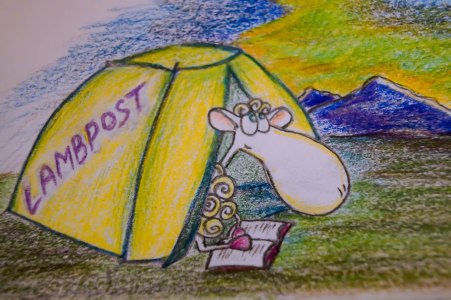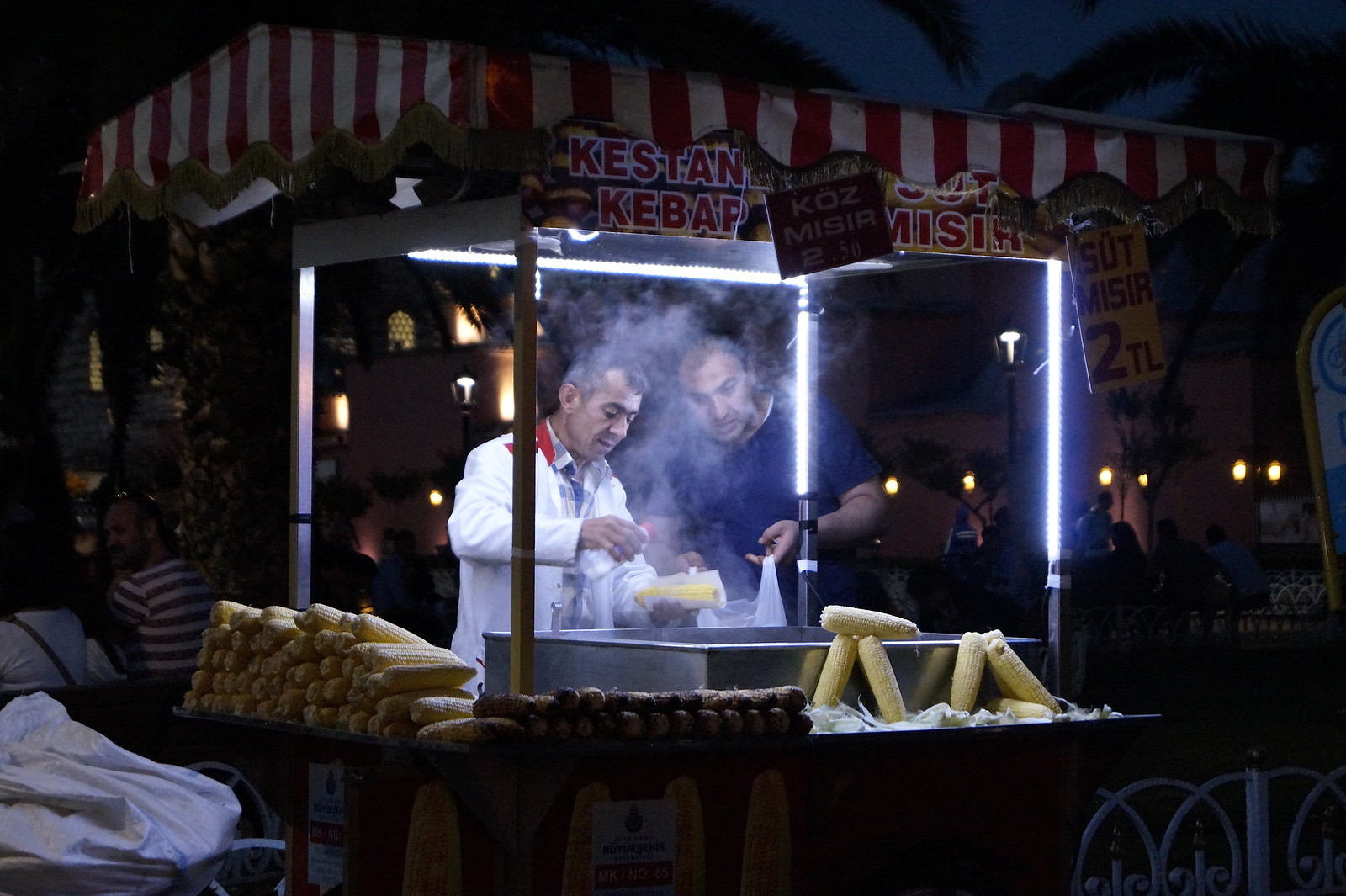WARNING: Contains pictures of food!
I love dates. Not the ones with awkward conversations and courtesy fights over the bill. I mean the ones that grow on trees and taste amazing on a hot day somewhere by the ocean.
Back in 2011, when I ended up living on an island near Istanbul, was the first summer of Ramadan in my life. It was also my first time to live in a Muslim country, and to hear the call for prayer five times per day from the nearby mosque. Of all memories of Istanbul, one particular fixed point in time will stay with me forever: the evening call for prayer. If you stand on one of Istanbul’s marvelous rooftops, in the light of the setting sun, sound of azan dawns upon you from all surrounding mosques as if the whole city was designed by an acoustic engineer.

To think about it now, Istanbul was a perfect introduction to Ramadan, the holiest month of Islamic lunar calendar, that celebrates the revelation of Quran to Prophet Muhammed. Because of its vast amount of tourists and large expat population, the city almost does not change for Ramadan fasting: all restaurants and cafés in the center remain open all day long, and no one expects you to abstain from water and cigarettes in public places. I imagine that in more traditional and remote parts of the city one could actually go a whole day without seeing a single person munching on simit in the street. But overall, on the surface, it looks like the majority of Istanbul’s modern crowds do not observe the Ramadan fast.

Only the most strong-willed people travel during Ramadan. The Quran says, that those who are unable to fast because of illness or long journey, can withhold from it for a few days, but must then compensate for these days by fasting later in the year.
For all people who fast in Ramadan, the most magical world of the month is ‘Iftar’. Iftar is the dinner with which they break the fast at sunset, after the call for prayer, and is not simply a table full of soups, rice, fried meat and vegetables, sweet desserts and milky drinks – Iftar is the time you spend with your family and close friends, every single evening of Ramadan. The pre-Iftar prayer also urges you to remember the dead, and the living, and your duties as a decent human being. Some people prepare the Iftar meal at home and invite guests and neighbors to join them, but in big cities like Istanbul, Iftar is an all-encompassing event, and various municipalities set up their Iftar tables under the sky, surrounded by food markets where one can buy all sorts of tantalizing delights of Turkish cuisine. In other neighborhoods, usually by the mosque, you will find community tables organized to feed the poor, or those who have no family to go to for the Iftar dinner. People usually break the fast with water and sweet dates – the most filling and satiating fruit of the Middle East.


My second Ramadan in a Muslim country was spent in Tunisia, a more conservative society than modern-day Western Turkey. Since my CouchSurfing hosts were fasting, I thought I could give it a try, and spend my entire time in Tunisia without eating anything during the day. The real Ramadan fast, however, entails no consumption of food at all between 3AM and 8:30PM, including water, which I felt I was unable to do, especially on my prolonged sweaty bus rides to the south of the country. So technically I cheated, yes.
‘Why are you fasting anyway?’ I asked some of my friends. ‘You do not strike me as the most devout practicing Muslims.’
‘It is a tradition. Like your Christmas,’ they shrugged. ‘It is something we’ve been doing since we were kids, and Ramadan fasting is part of our annual routine.’

‘It is amazing to see different family members for Ramadan: we try to visit everyone on various weekends, even those who live in other cities, or even countries,’ somebody else remarked. ‘But since we do not live with our parents, we normally invite friends over for Iftar, and have great dinners together before we go out for drinks.’

Ramadan, for many people, is part of their identity, engraved in childhood memories – and part of growing up, since young children are not supposed to observe the fast.
In Tunisia nowadays, some people do not fast, but in Ramadan you will not find any restaurants or cafés open during the day (save for touristic hotels and resorts). There is, on the other hand, a certain number of venues that stay ‘open’ for Ramadan, that is, serve food and drinks behind the closed doors. If you happen to come across one of those and feel tempted to come in for a cup of tea, make sure to bring your gas mask: all non-fasters seem to be compulsive chain-smokers.
‘I remember always looking forward to Ramazan when I lived in Iran,’ a friend of mine recollects. ‘It is because Ramazan food is the best. I am not sure whether it’s because my mum’s cooking is the best, or because everything tastes better after you’ve been starving for the past 17 hours.’ Ramazan fast is a spiritual practice. It may not bring you closer to God or enlightenment, but it will certainly help you cultivate patience and develop a new taste for life and its pleasures. Think of it as a way to break your normal routine, in order to see the things you take for granted in a different light: a piece of bread will taste like nothing on a normal day, but it will be your most awaited meal of the day during Ramadan.

Which brings us to another major reason behind Ramadan: the Quran teaches that those who cannot fast during this month, like old or sick people, must instead feed the poor for every day they miss the fast. Abstinence from food and water is a way to experience what poor and homeless people live through every day, to get your head down from the clouds and become aware of the disastrous poverty and hunger that many people experience in our world. Ramadan is the time to feed a random stranger, invite them to your Iftar table, make donations to the mosque or charity of your choice.
‘For me, Ramadan fast is one way to achieve peace of mind,’ another friend of mine told me once, in a different country. ‘I grew up with it, and it reminds me of home, now that I live far away from family.’ She later did 10 days of silent and solitary meditation, to cope with stress and retrieve her inner balance.

Ramadan fasting is not extremely hard after you get into the rhythm of it – except for the part that you are not allowed to drink any water before sunset, in the scorching summer heat. Still, excruciatingly hot weather that envelops Turkey in the summer months does not really encourage one to eat, or do much movement before the sunset anyway. The eating spree starts after the evening prayer around 8:30PM, and lasts until around 3:30AM, which is the last time you are allowed to eat for the day. The night meal before sunrise is called Sahar/Sahur, and in Turkey, some neighborhoods employ a special person to navigate the streets from 2 until 3AM, banging on the drum in order to wake everybody up for the last meal before sunrise.

Ramadan means different things to everyone. It is a cleansing experience, a cultivation of patience, a sign of awareness about poverty and world hunger, a family tradition, a part of one’s identity, or simply a good reason to work less and spend more time with your loved ones. As for us, naive and innocent expats, Ramadan is a month to make new friends, attend outdoor Iftar in the neighborhood and be invited to a stranger’s house to break the fast with sweet dates and talk.

Anyways, Eid Mubarak to all the people who complete their fasting today!







I like your post, i’m a muslim and i amazed by how detail you write about Ramadan. In my city, we only fasting for 12 hours.
Istanbul is my favorite city. Hope to visit it someday. It’s a place where Asia and Europe meet, both geographically and culturally. Thanks for such a wonderfully vivid description.
Istanbul is kind of the center of universe where all roads lead in the end. At least for me.
I recomended you to visit Indonesia, the biggest country of Muslim in entire world. Anyway, I’m a muslim too. And I do really love Ramadan and fast (of course).